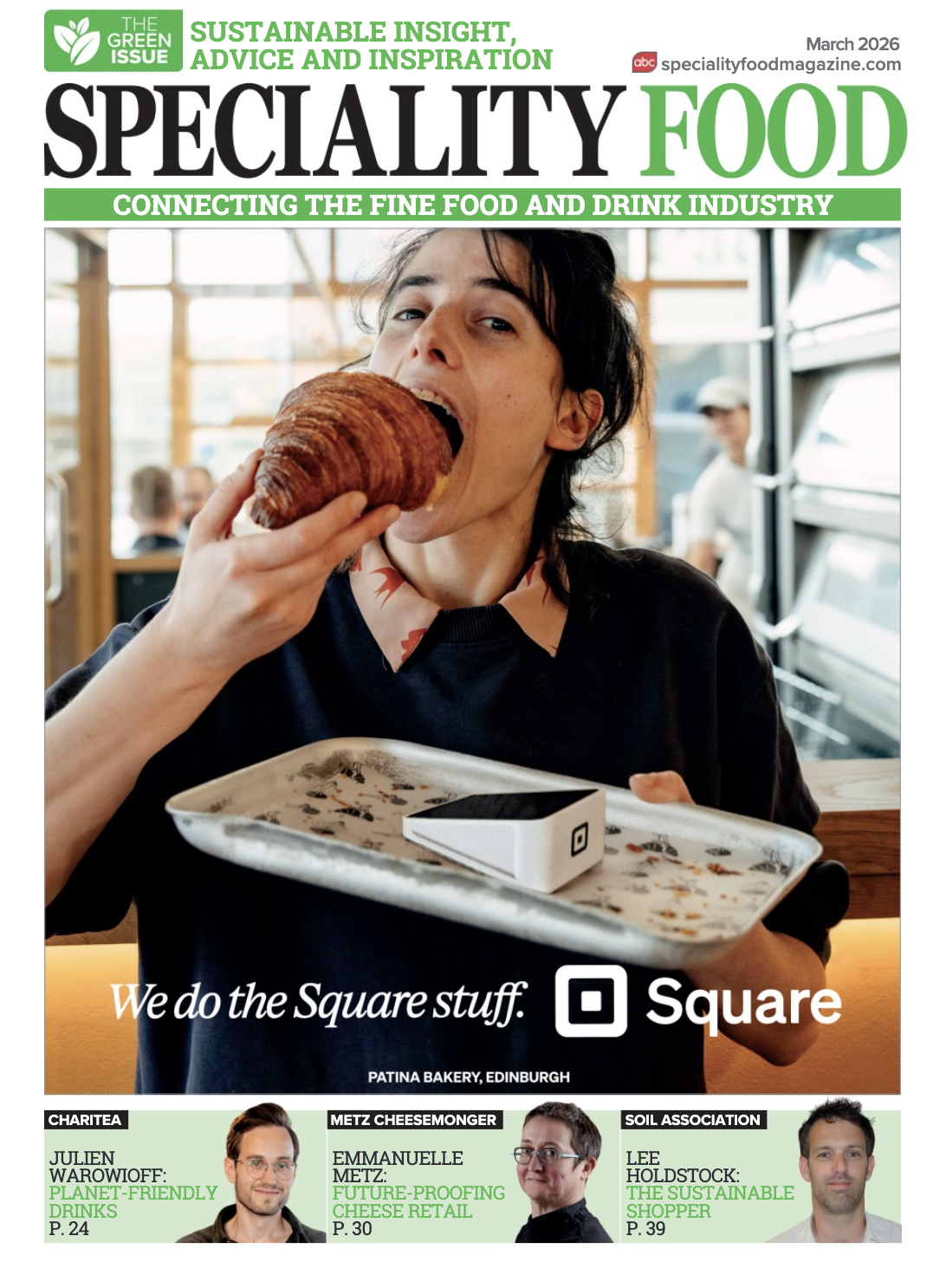“Time for customers”

- “Sticky fingers”
- “Everyone’s a winner”
- “Myths and legends of Turophilia”
- “When ‘cheese’ is not cheese”
- “Don’t disrespect the Cheddar”
As a small independent retailer, we have three main factors in our favour in the struggle against the multiples: range, expertise and enthusiasm/passion/personality – call it what you will
But often we also benefit from shorter queues than supermarkets and can deliver immediate service. At peak times, in my case notably the tourist season and the pre-Christmas weekend, we do have queues, even extending outside the shop. Most people are prepared to wait, but with impatient children in tow or parking deadlines looming, we need to serve as briskly as we can to minimise walk-aways.
How long should we spend with a customer? Ideally, they get our full attention until they’ve selected their cheese. They’re then transferred to a colleague to be ‘upsold’ and the transaction completed. When there’s a queue, social norms add a bit of urgency; folk generally don’t like to keep those behind them waiting unnecessarily and things move along quite nicely. But sometimes the peer pressure doesn’t work and we have to use tact, diplomacy and a few knacks to help people come to a conclusion.
In a tourist town like Lyme Regis, many of our shoppers are on holiday and come in with a companion or group that isn’t used to making decisions together. While it’s always fascinating to watch people interacting in new groupings, it’s also a lot slower than dealing with single customers. So we try to identify the ‘leader’ and then address the others in support of the leader’s thoughts on type, size and number of choices. Wavering groups can tend towards a compromise of small amounts of a large number of cheeses, rather than decent quantities of a considered selection, which would enable everyone in the party to enjoy a sample of each cheese. It’s also a lot more work for us to cut and wrap 12 x 100g, rather than say four x 300g. So we try to steer them towards the more concise selection, saving a lot of time.
If the customers at the head of the queue are in extended debate amongst themselves while sampling cheese, we’ll attempt to multi-task and deal with the next in line as well. Obviously we ask permission first! Sometimes the two groups will discuss the cheese together, which can lead to swift decisions from both parties – and easy handling: “We’ll take the rest of that.”
Largely, dealing with customers in the shop could be said to take as long as it takes, despite the tweaks that we use to jolly things along a bit. When it comes to email and telephone enquiries it can get a lot more difficult. I tend to engage in email discussions only where detailed estimates are involved or for overseas purchasers. These are mainly concerning hampers and cheese wedding cakes. People don’t expect an instant response to email and generally I deal with them outside shop hours. However, there’s an easy trap to fall into with email correspondence – ping-ponging messages to and fro at eight hour intervals while trying to move customers towards a conclusion. Sometimes I forget that changing the medium of communication and picking up the phone to clarify a point or check on a preference could save a series of emails and bring matters to a close more swiftly.
The telephone can be an awkward tool in a busy shop. If we have a queue, we won’t pick up when the phone rings – hopefully our answering machine will deal with that enquiry (often just for opening times) – until we can return the call. It gets sticky when we’re talking to a customer on the phone and then a real live punter walks through the door, expecting (and deserving) attention. The visitor can think that we’re gossiping with chums and the caller resistant to the call being wrapped up swiftly. We seek to explain to each party that we are busy, and promise to return the call once the visiting customer has been dealt with. Bizarrely the callers who are least happy about the call being truncated are the true time-wasters – those calling for directions to other shops, those calling to see if we’ve had deliveries of their favourite free magazine – oh, and sales reps!
I’m not going to get it right all the time. For the last two Christmases I have entered into email conversation with someone who was interested in postal delivery of a cheese we had created for the Radcliffe & Maconie show on BBC Radio. She wanted to know size, price and postage costs – in 2013 she seemed to run out of time as the last message was on 23 December. The following year she asked the very same questions – we gave the revised costs – she then wanted to know if there was a cheaper despatch method. Although wearying of the exchange I explained that 24 hour delivery was necessary and that less reliable, cheaper couriers could lead to spoiled goods. For the second year running, she declined to purchase, but thanked me for “exceptional customer service”! I was tempted to point out that the term ‘customer’ is normally used to describe people who actually bought something, but restrained myself. Thankfully so, as she went onto praise the shop fulsomely via social media. Who knew?
more from Town Crier
-
“Black and White thinking”
08 August 2019 Town CrierLast time around I suggested trumpeting the benefits of the produce we offer, and the importance of conveying its taste and of making each purchase viscerally appealing. -
“We’re a resourceful bunch”
17 May 2019 Town CrierIt’s almost exactly 10 years ago that I sat down to create the first business plan for my cheesemonger. -
“Waxing lyrical”
12 February 2019 Town CrierOn a family holiday to Normandy in 1965, my parents and their adult friends were hugely excited by Livarot and Camembert – seldom seen back home in Hampshire.

